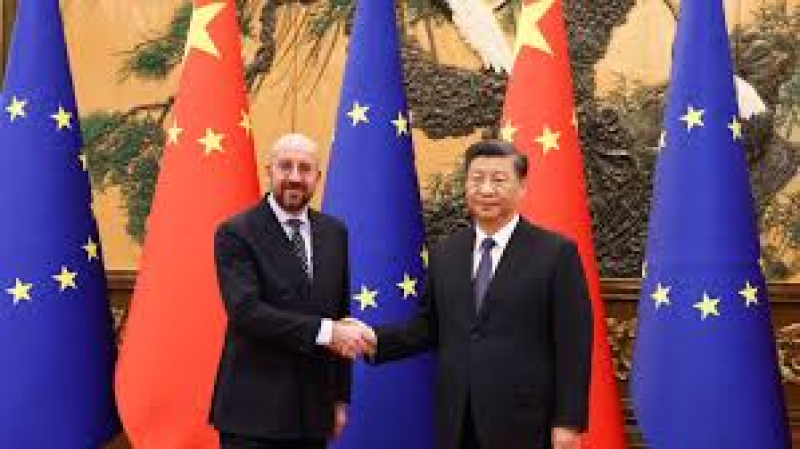- U.S. Embassy Dhaka Welcomes Ambassador-Designate Brent T. Christensen |
- Survey Shows Tight Race Between BNP and Jamaat-e-Islami |
- Yunus Urges Lasting Reforms to End Vote Rigging |
- Govt Cuts ADP to Tk2 Lakh Crore Amid Fiscal Pressure |
- Home Adviser Urges Ansar Professionalism for Fair Polls |
China's Xi Jinping meets top EU officials in Beijing

European leaders met Chinese President Xi Jinping in Beijing on Thursday for talks dominated by divisions between the EU and its largest economic partner.
EU President Ursula von der Leyen, flanked by European Council President Charles Michel and EU foreign policy chief Josep Borrell, said there were "clear imbalances and differences that we must address."
China and the EU have heightened diplomatic engagement this year, seeking to hasten post-pandemic recovery and repair damaged ties. Several EU commissioners have visited Beijing to restart high-level dialogue, reports DW.
What is expected from the talks?
The EU says it hopes the top-level discussions, which are the first face-to-face talks in more than four years, will address common interests such as climate change and health.
The talks are also expected to broach more thorny areas, from human rights to Beijing's continued ties with Russia despite the latter's war in Ukraine.
This is the final opportunity for both sides to meet in person before the European Parliament elections begin in 2024, which will mean a change in the bloc’s leadership.
Both Chinese and European officials attempted to play down expectations ahead of the meeting. China's foreign minister, Wang Yi, warned many Beijing-based diplomats from EU member states at the beginning of the week that Europe should aim for "peace and stability" over choosing a "new Cold War."
What have the EU and China said so far?
In opening remarks, von der Leyen said that the interests of the EU and China were sometimes similar, taking cooperation in the fields of artificial intelligence and climate change as an example, but that they often did not converge.
"And when they do not, we need to address and responsibly manage the concerns that we have," she said.
Michel, for his part, said the EU wanted a "stable and mutually beneficial" relationship with China, but that the bloc would also "promote our European values including human rights and democracy" at the summit.
The Chinese president, in his first comments, called for a joint response to what he called "global challenges."

